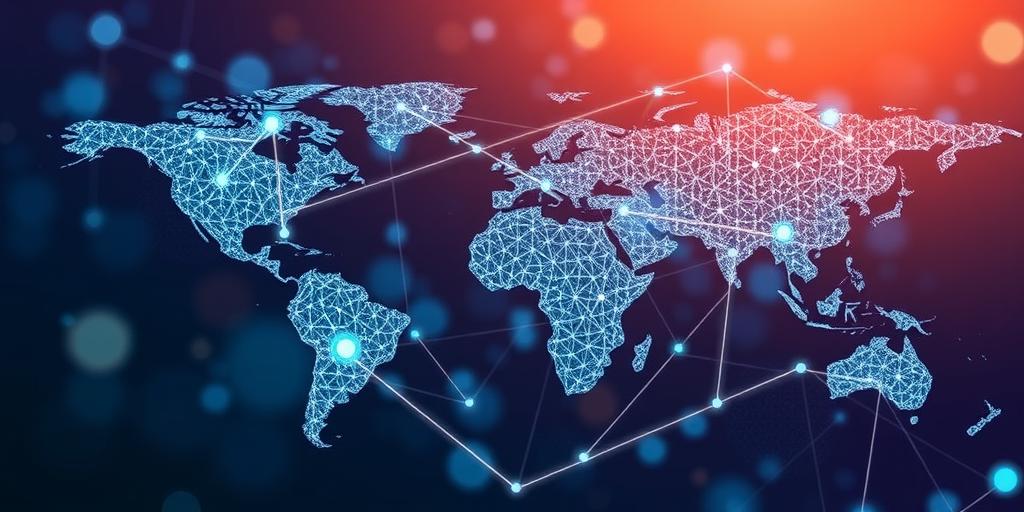International Cooperation in Tech Policy: A Complex but Necessary Endeavor
In an increasingly interconnected world, technology transcends national borders with ease. From social media platforms connecting billions to sophisticated AI algorithms impacting global economies, the digital realm necessitates a collaborative approach to policy-making. This article delves into the multifaceted nature of international cooperation in tech policy, exploring its challenges, benefits, and potential future directions.
The Imperative for Global Tech Governance
The need for international cooperation stems from several key factors:
- Cross-Border Data Flows: Data moves seamlessly across borders, raising questions about privacy, security, and sovereignty. Different national laws can clash, leading to legal uncertainty and hindering innovation.
- Cybersecurity Threats: Cyberattacks are often transnational, requiring coordinated responses. No single nation can effectively combat sophisticated cybercriminals or state-sponsored actors alone.
- Artificial Intelligence (AI) Governance: AI systems are rapidly evolving, raising ethical and societal concerns that require global dialogue. Issues such as bias, accountability, and the potential for misuse demand international standards and best practices.
- Market Dominance: The dominance of a few tech giants raises concerns about competition and fairness. International cooperation can help ensure a level playing field and prevent anti-competitive practices.
Challenges to International Cooperation
Despite the clear need, achieving effective international cooperation in tech policy is fraught with challenges:
- Divergent National Interests: Countries have different priorities and values, leading to disagreements on policy approaches. For example, some nations prioritize data privacy, while others emphasize national security.
- Geopolitical Tensions: Political rivalries and mistrust can hinder cooperation. Disagreements over trade, security, and human rights can spill over into the tech policy arena.
- Lack of Common Standards: The absence of universally accepted standards and norms makes it difficult to harmonize regulations and enforce compliance. Differing interpretations of key concepts, such as data privacy or cybersecurity, can create friction.
- Enforcement Challenges: Even when agreements are reached, enforcement can be difficult. The global nature of the internet makes it challenging to track and punish violations of international law.
Examples of International Cooperation
Despite the challenges, there are several examples of successful international cooperation in tech policy:
- The European Union's General Data Protection Regulation (GDPR): While not universally adopted, the GDPR has influenced data protection laws around the world and spurred international dialogue on privacy standards.
- The Budapest Convention on Cybercrime: This treaty provides a framework for international cooperation in combating cybercrime, including harmonizing laws, sharing information, and extraditing offenders.
- The World Trade Organization (WTO) agreements: The WTO plays a role in regulating e-commerce and promoting the free flow of information across borders.
- The United Nations (UN) initiatives: The UN has launched several initiatives to promote digital inclusion, bridge the digital divide, and address the ethical implications of AI.
The Future of International Tech Policy
Looking ahead, international cooperation in tech policy will become even more critical. Some key areas of focus include:
- Developing common standards for AI governance: International organizations, such as the OECD and UNESCO, are working to develop ethical guidelines and regulatory frameworks for AI.
- Strengthening cybersecurity cooperation: Governments, industry, and civil society need to work together to share information, develop common security standards, and combat cyber threats.
- Addressing the digital divide: International efforts are needed to ensure that everyone has access to affordable and reliable internet access and the skills to use it effectively.
- Promoting digital inclusion: Efforts to ensure equitable access to technology and digital literacy for marginalized communities worldwide.
- Enhancing data governance frameworks: Harmonizing data protection laws and promoting cross-border data flows while respecting privacy and security.
International cooperation in tech policy is a complex but necessary endeavor. By working together, nations can harness the benefits of technology while mitigating its risks and ensuring a more equitable and secure digital future for all.









